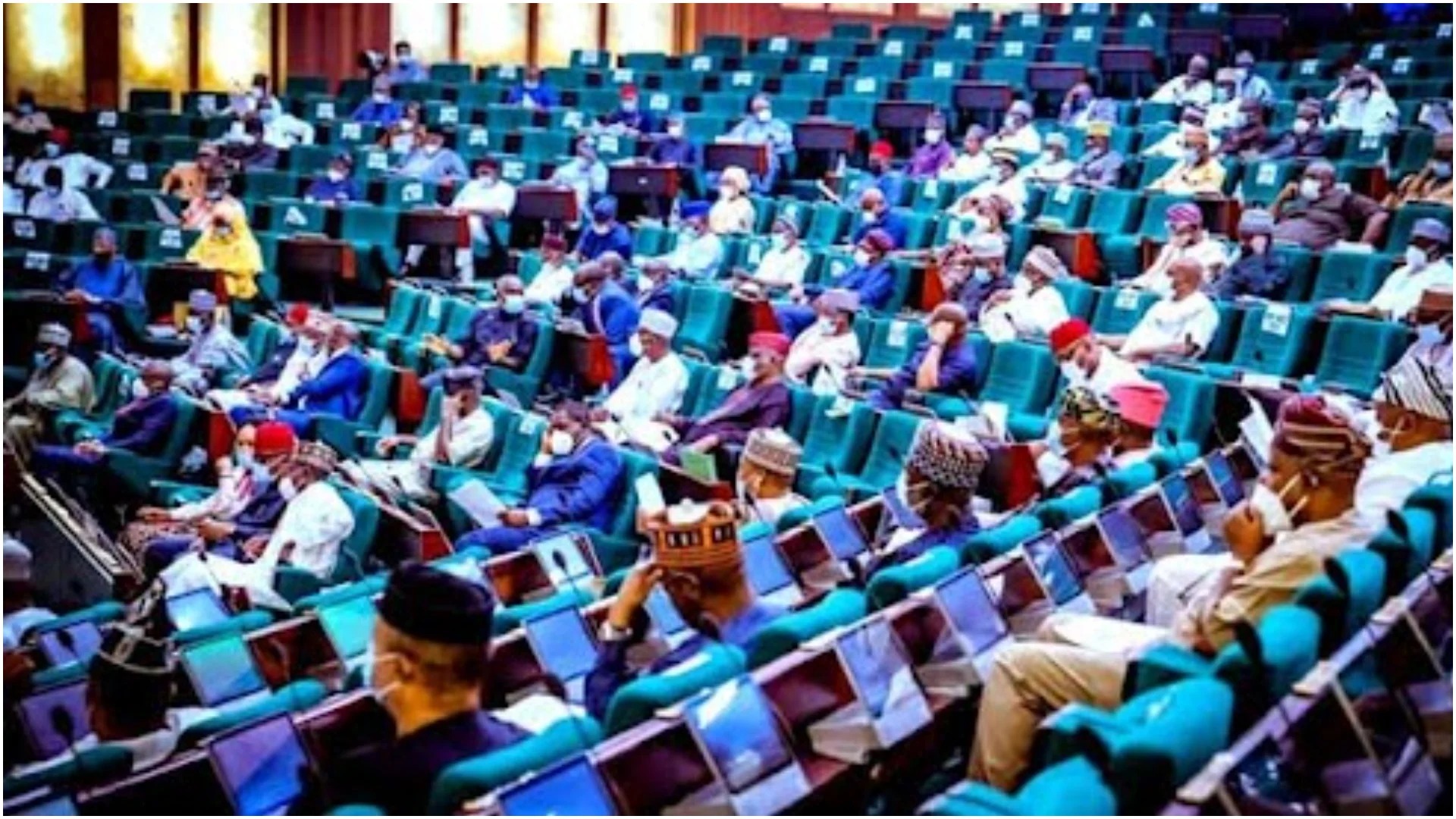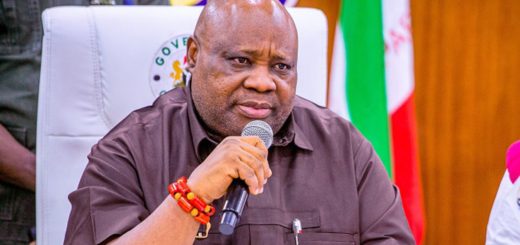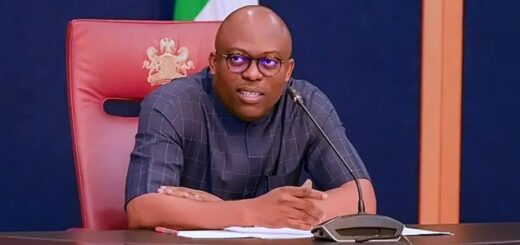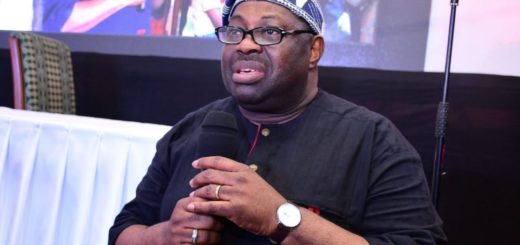MBF President, Bitrus, ex-lawmaker, Yusuf weigh planned increment of derivation fund

According to reports, the proposed legislation, which was sponsored by Awaji-Inombek Abiante and eight others, is seeking for an alteration of Section 162(2) of the 1999 Constitution (as amended).
Abiante, in the legislative brief, said the 13 percent derivation fund currently in operation was grossly inadequate and a misrepresentation of the spirit of pre-independence negotiations and agreements.
He emphasised that there was an urgent need to increase the derivation fund from 13 percent to not less than 50 percent.
He said: “Even in the intent and desire to ensure the rehabilitation and development of the damaged environment where mineral resources (liquid, gaseous and solid) are derived for the sustenance and development of the whole country does not also seem achievable with the current practice of 13 percent.
“This Bill is not all about resource control but an attempt to address the myriad of issues bordering on the meager “not less than 13 percent” derivation fund payable to states on revenues derived from their environment as provided for in Section 162(2) of the 1999 Constitution of the Federal Republic of Nigeria as (amended).
“It is important to state that this amendment is not only relevant for today but also for the future. Some of us may feel that this section that we seek to amend makes no sense to them, because their states are not presently affected but it is pertinent to ask, what about the future?
“Let us remember that every state in the Federal Republic of Nigeria is blessed with abundant natural resources capable of turning to be the economic fortunes of the country. The increased interest by the Federal Government to reduce the dependence on oil and gas as the mainstay of our economy means attention will be shifted to the solid minerals.
“The huge environmental impacts of the exploitation of natural resources on the host communities are devastating. These include but are not limited to pollution. “Pollution of the environment, through oil spills in the case of oil exploitation and the destruction of the soil in the case of solid mineral exploitation. This means the destruction of the means of livelihood of the people.
“The incessant oil spills in the Niger Delta, sometimes culminates to serious fire incidents that destroy lives and property including farmlands. The sea and water resources are not spared either. The destruction of the environment in areas where solid minerals are mined has also affected the means of livelihood of the people.
“The spiral effect of loss of livelihood like hunger, leads to other social vices and organised crimes such as insecurity and youth restiveness. The effects of insecurity and youth restiveness are better imagined than discussed here.
“The meager ‘not less than 13 percent derivation as presently provided for by the 1999 Constitution of the Federal Republic of Nigeria encourages Illegal exploitation and mining of our natural resources.”
One of those who think that the piecemeal amendment might not achieve much except a holistic approach that would incorporate part of the 2014 confab report is the president of the Middle Bele Forum, MBF, Dr. Pogu Bitrus.
His initial reaction to the development was that the lawmakers’ move only shows Nigerians are going back to the parliamentary system, which was what obtained before the intervention of the military in 1966.
“You know that before the military intervention when the regions were still operating, they held back up to 50 percent of whatever revenues that accrued to them and the other sent to the federal body for the running of the federal government.
“So, this House of Reps’ move is like bringing back the pre-military intervention constitution because the constitution of 1963 provided for such an arrangement. “Each region produced whatever it could, held back 50 percent from such proceeds and sent 50 percent to the Federal Government or whatever it was.
“Now, we are coming gradually to what some of us are saying that we should go back to the 1963 constitution, by updating it to accommodate current realities, using the 2014 Confab Report and then we can have, through what we call referendum, the people’s democratic constitution, and actually that was what the patriots tried to do when they met Mr. President.
“So, if the House of Reps is doing that now, it is just like saying we endorse what the patriots are doing, let’s go back to the 1963 constitution. It was the People’s democratic constitution and it was the last people’s democratic institution and let us start implementing what is there,” he told DAILY POST.
But, he is of the opinion that in doing that, the lawmakers should consider updating the 2014 confab report alongside the 1963 constitution in order to produce a constitution that would be acceptable to Nigerians.
He said: “Now, rather than doing this, why can’t the national assembly say, ok gentlemen, let’s bring back the 1963 constitution, which was truly the people’s democratic constitution, update it with the 2014 confab report and let it now follow the process established by that constitution, to give us a constitution that will be acceptable to Nigerians and address our contemporary issues.”
He insisted that picking only the issue of derivation from the constitution and addressing it in isolation, might not achieve much results.
This is because, according to him, mixing presidential and parliamentary systems at the same time will not help the country.
“So, picking it as a lonely item from the constitution, doesn’t address the problems, whether it is physical federalism or whatever.
“It s better to look at the constitution, use the processes of that constitution, which was the last people’s democratic constitution, update it with the 2014 confab report, which attempted to address our current and contemporary issues to get a constitution out that we can adopt through a referendum and that will solve our problems.
“We cannot just be saying we are running a presidential system and then we pretend to adopt things from the parliamentary system which we left and try to resolve contemporary issues; it will create more confusion,” he insisted.
In his contribution, a former lawmaker from Katsina State, Shehu Yusuf said the idea is a good one, considering the level of environmental issues that oil producing states are confronting.
However, he noted that such an increment should not be more than 50 percent so that there could be something left in the government’s purse for other states’ development. In other words, he supported the idea of increasing the derivation fund from 13 percent but kicked against moving it to 50 percent, saying it would be too much.
He said: “What the House of Representatives wants to do is a welcomed idea but the increment is too much. Why can’t it be 20 percent? That will enable them to take care of the negative effects of oil exploration activities in their area, particularly the environmental issues, but 50 percent is too much.
“What I am saying is that the idea is a good one because they are oil producing states. They are contributing to the economy and survival of Nigeria, and as such, they should benefit from what their soil is producing for the country.
“The 13 percent currently being given to the states is commendable but since things are changing, there is also a need for an increment to at least 18 to 20 percent but not 50 percent.”
He also argued that apart from such money helping to address the environmental challenges posed by oil explorations in such states, equity demands that the goose that lays the golden eggs should be adequately taken care of.
“Again, it is also for the sake of equity and concern. Any state that adds to the development of the nation should also benefit from what is being derived from its area; it is a good idea and I support it. The goose that lays the golden eggs shouldn’t be toyed with,” he submitted.













